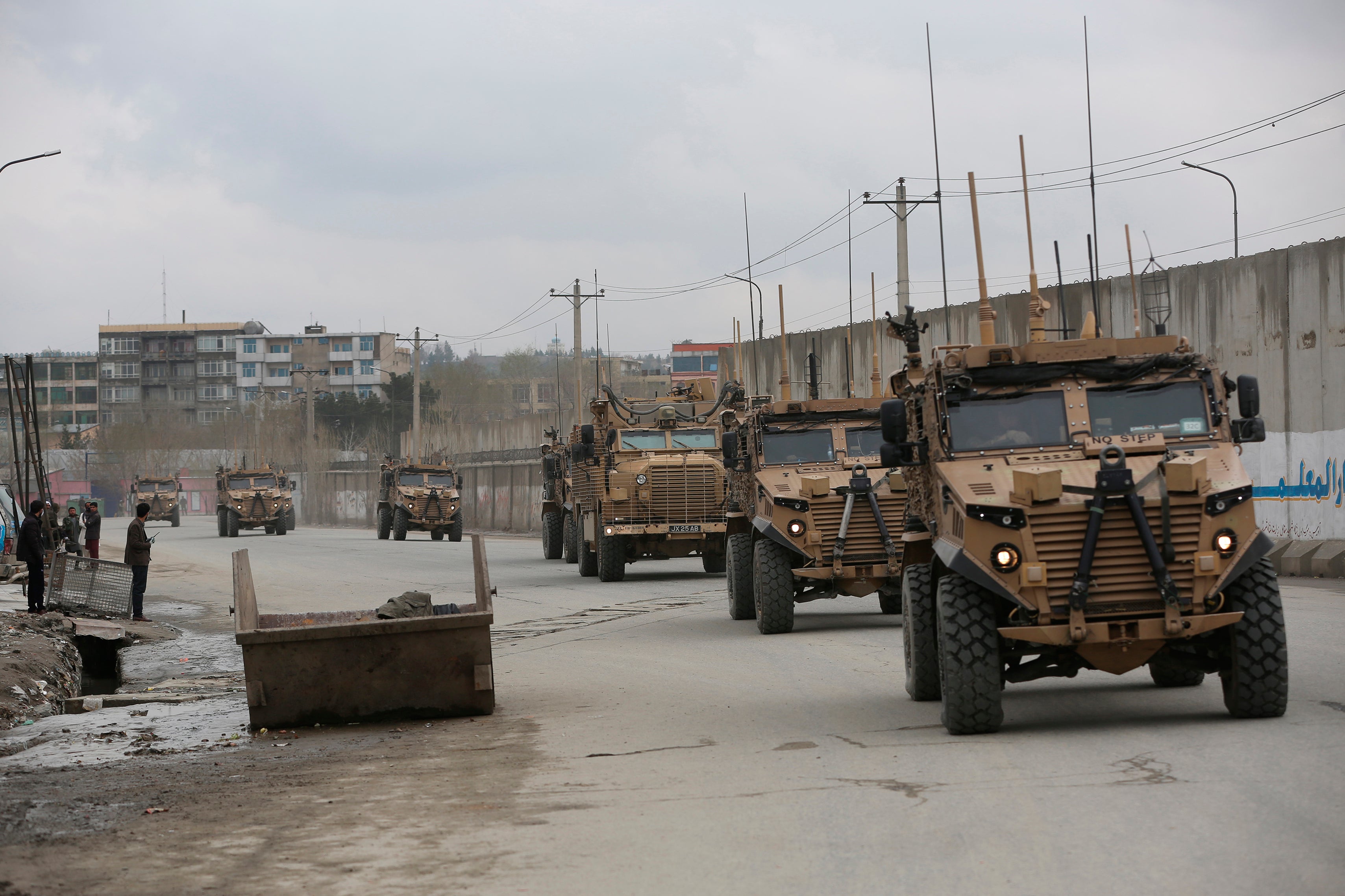Does the Afghanistan pull-out put Nato at risk?
Arguably the action in Afghanistan was Nato’s finest hour but, writes Sean O’Grady, the withdrawal is a more ignominious episode


It is a particularly painful irony for Nato that their action in Afghanistan should have ended in such disarray among alliance partners. The British, in particular, as the second-largest contributor to combat and support operations, are feeling especially bruised that the United States planned its withdrawal without much, if any, consultation with its allies, and not even the one that likes to believe (despite some evidence to the contrary) that it enjoys a “special relationship” with the United States. Ben Wallace, the defence secretary, has publicly criticised President Biden, and many more agree with him.
In a pointed intervention in the Commons debate on Afghanistan, Theresa May asked her successor when he had first consulted the Nato secretary-general, Jens Stoltenberg, about the withdrawal. Boris Johnson merely responded that he’d spoken to him the other day. As Ms May added later, equally pointedly, there isn’t much sign of “Global Britain” on the streets of Kabul: nor was there, it has to be said, much sign of Global Britain having had a say in the Oval Office when Donald Trump and Joe Biden made their fateful decisions, determined, in short, by an “America First” approach. The former prime minister also voiced the concerns of many in all corners of politics by calling for a review of Nato’s decision-making.
The Taliban has thus not only inflicted a military defeat on Nato and its ally, the former Afghan government, but caused more lasting damage to the alliance. The resentment at the unilateral decision of the US to withdraw has added to fears that America might abandon its European allies as readily as it did the Afghans. Those misgivings have been growing since President Trump openly doubted Nato’s usefulness and the disproportionate financial burden shouldered by the US. There is more talk, however futile, of European states organising their own defence.
The action in Afghanistan was, after all, the first time that the collective defence clause in the 1949 Nato treaty had actually been formally invoked. After the 9/11 atrocities, the most powerful military grouping in the world declared that the attack on the United States was an attack on all, and Article 5 was triggered. It states: “The parties agree that an armed attack against one or more of them in Europe or North America shall be considered an attack against them all and consequently they agree that, if such an armed attack occurs, each of them, in exercise of the right of individual or collective self-defence recognised by Article 51 of the Charter of the United Nations, will assist the party or parties so attacked by taking forthwith, individually and in concert with the other parties, such action as it deems necessary, including the use of armed force, to restore and maintain the security of the north Atlantic area.”
Of course, the United States would have bombed and invaded Afghanistan in any case, but it was natural for the Bush administration to turn to America’s allies for support – both diplomatic and military – and it was freely given. Arguably, it was Nato’s finest hour; the withdrawal is a more ignominious episode.
Nato will survive, though, because there is no alternative to it. Even if there were much chance of a European defence community or union, largely working through the European Union, Brexit has made that impossible. When the British, reportedly, canvassed France and Germany about carrying on in Afghanistan after the US retreated, they were met with little enthusiasm. As Johnson sought to explain to the Commons as part of his own alibi – though it is true enough – such an operation without American logistical support and military heft would be impossible.
No doubt Johnson and his European counterparts will politely ask to be involved in US policymaking; but the truth, unpalatable to some, is that whatever the rhetoric about “America is Back”, Joe Biden is just as much an “America First” president as his predecessor. The trend to isolationism has been long in the making, driven by apparently never-ending, unwinnable wars and supposedly ungrateful or incompetent allies. As with the Taliban and anyone else, America has to be judged on its actions as much as its words.

Join our commenting forum
Join thought-provoking conversations, follow other Independent readers and see their replies
Comments